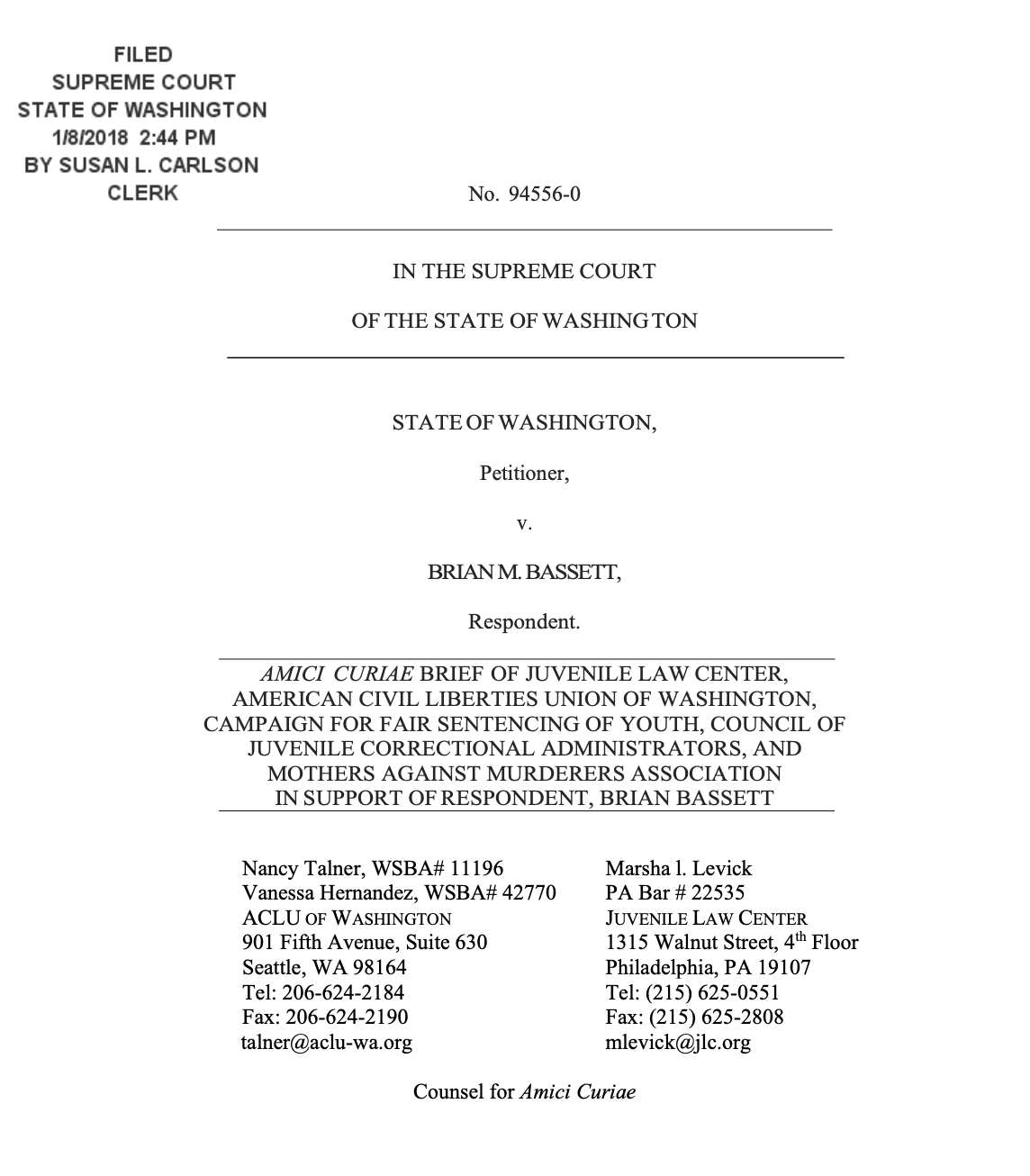
Summary of Argument
Brian Bassett is serving three life without the possibility of parole sentences for the murders of his family members committed when he was age 16. This sentence was re-imposed when Mr. Bassett was age 35 and had served 20 years in prison, despite the prosecution’s failure to rebut the significant evidence demonstrating Mr. Bassett’s post-offense rehabilitation. The Court of Appeals ruled that the sentence violated the state Constitution. In addition, amici curiae adopt the Statement of the Case as set forth by Respondent Bassett.